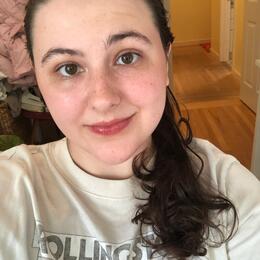10.5 acres of oak woodland, fields, and beaches, with a Victorian-style mansion overlooking the bluff, the Richardson Bay Audubon Center & Sanctuary was a place where anything seemed possible. I had been there many summers as a camper, and then, when I was 11 years old, spent my first summer as an Audubon Youth Leader (AYL) where I led dozens of children at Audubon Adventure Camp. This time, just as always, it was impossible not to feel the wonder of nature in such a wild place. There were secret beaches that could only be reached at the lowest of tides, stoic circles of redwood that created pools of deep shade, and vernal ponds that filled with summer wildflowers and tangles of blackberry. Being an AYL was challenging work. I spent hours each day beneath the harsh Californian sun, and my legs tired with the constant exertion of chasing after young children. But the fact that I could open the eyes of the kids I led to the wonder of nature kept me coming back every summer for years.
As an AYL, I directed activities, taught ecology, and took responsibility for the campers’ safety. I often saw the impact of my work as the children discovered the sanctuary’s transformative beauty. I watched their excitement when they saw the fin of a leopard shark cresting the ocean’s surface, or the gentleness with which they held purple shore crabs. But the times that were most challenging — and most rewarding — were during crises. A camper pushed another camper into the mud; after I helped them reconcile, they became best friends. An upset camper ran away; after finding her and calming her down, she told her mother at pickup she couldn’t wait to return tomorrow. A camper with special needs often had tantrums; by practicing patience, I helped him have the summer camp experience every child deserves.
From coming face-to-face with sunbathing rattlesnakes to removing ticks, each day brought with it new challenges. However, these challenges helped me forge friendships with my fellow AYLs — friendships that would last years. Each challenge was a new story, a shared memory which gave us common ground. Over the many years I volunteered, the sanctuary director, Casey, became a friend and mentor to me. Throughout the years, I found a family at Audubon.
When a neurologic illness forced me to become wheelchair-bound, my days of chasing campers, along with many other parts of my life, shattered. But my time at Audubon wasn’t over. Casey continued to give me work around the sanctuary, and my friends continued to tell me the summer’s stories. Now, I write newsletters, webpages, and articles for Audubon. I’ve even spoken with California legislators on behalf of Audubon to ensure support for conservation laws, such as SB 977, a bill creating initiatives for conservation ranching and on using California’s budget surplus for climate solutions. Working for Audubon gave me a connection to nature that I thought was lost in the wake of paralysis.
I return to the same spot beneath the trees I had sat under for years, this time on wheels instead of legs. My AYL friends, now college students, navigate my wheelchair over the craggy trail through the fields and through the woods, past the vernal pools reduced to knots of blackberry vines. The mansion still towers above the sea with its peeling yellow paint and garden of jasmine vines, the Bay still glimmers with wildness, and anything is still possible. I think of the many children I’ve helped over the years: the children whose scrapes I’ve bandaged and tantrums I’ve calmed. We often think of leaders as agents of change, just as I thought being a leader meant creating a passion for the outdoors in the kids I led. But my time at Audubon taught me that the greatest change is created through simple acts of strength and compassion. I’ve seen firsthand how showing someone they’re not alone when they fall gives them the strength to get up.
I believe that empathy can change lives. The support of my Audubon family changed mine.




